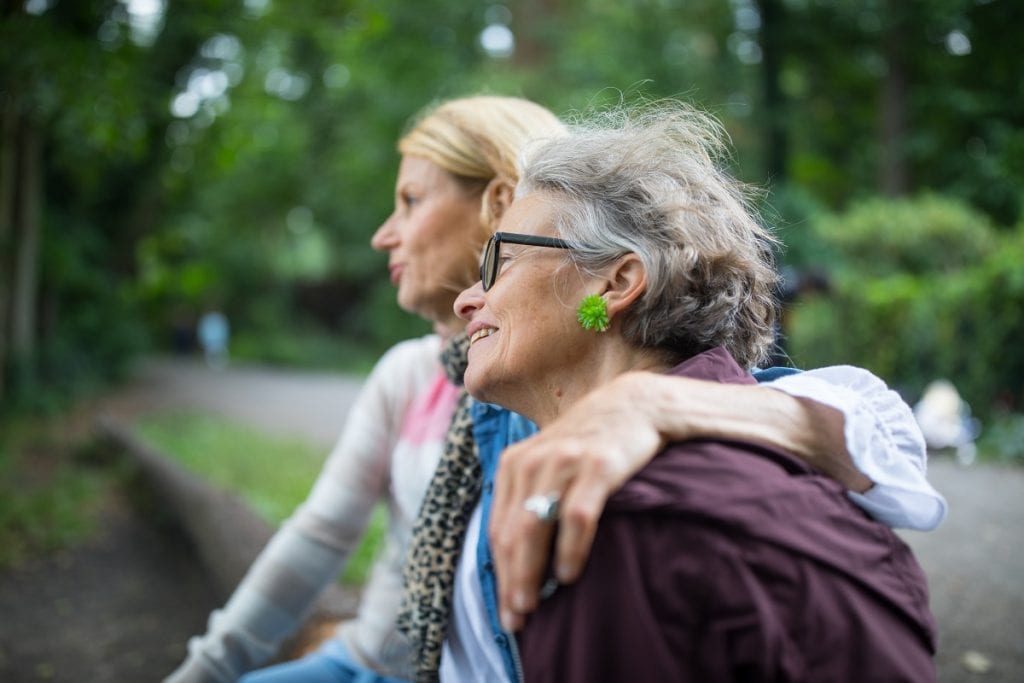Your emotional reaction to your dementia diagnosis
“It was very overwhelming, you know, to be really told ‘Yes, you do have dementia”.
People with dementia often tell us they felt shocked and numb when told their diagnosis. Many said they felt extremely distressed and upset. Some described grief and loss. Some felt anger that this had happened to them. A few told us they felt relief as they finally had an explanation for what was happening to them.
Almost all the people with dementia we’ve talked to described strong emotional reactions to being told the diagnosis.
Many felt overwhelmed and said they couldn’t listen, think or do much immediately after the diagnosis. It takes time for feelings to settle down.
For some people it takes a couple of days, for others a couple of weeks. If it takes more than a few months and you’re still feeling distressed about your dementia diagnosis, then it might help to get help to work through those feelings. These strong feelings can get in the way of moving forward with dementia.
Coming to terms with your diagnosis and moving forward with dementia
If you are diagnosed soon after you notice symptoms, the idea of having dementia might be more disabling than the symptoms of dementia.
You may feel grief and loss. You may be worrying constantly about the future, and for your loved ones. These feelings and thoughts may get in the way of taking part in and enjoying the things you like to do. Working through these feelings can help you get back to enjoying life again. Stopping your normal activities or stopping seeing friends can make dementia worse, as keeping active and socialising is good for the brain. Boost your brain health explains the benefits to your brain of keeping active and social.
Having dementia is not something to be ashamed or embarrassed about.
Dementia is a long term illness, just like diabetes or arthritis.
Dementia can happen to anyone. Read about breaking down myths and stereotypes about dementia in Adapting to your dementia diagnosis.
Younger people can sometimes feel more shock, as dementia is often mistakenly thought of as an older person’s disease.
Find out more about the experiences of younger people diagnosed with dementia. Watch Hilary’s story to find out how she found her diagnosis helpful.
Talking about your worries and feelings can help.
You might talk to someone you know well and trust. This may be a good friend, family or a faith leader. You may prefer to talk to someone less close to you – perhaps a healthcare professional like your GP, or even contact a confidential dementia helpline such as The Alzheimer’s Society freephone Dementia Connect service.
Sharing feelings can make them feel less intense and can be an important step to getting support.
Some people prefer to work through their worries and feelings by writing them down. Getting your thoughts and feelings down on paper can help you understand them more clearly and feel more in control.
Read more about managing how you feel about life with dementia.
Early support to help you adjust to your dementia diagnosis
Healthcare professionals tell us that after diagnosis, people with dementia and carers often say they don’t need help yet.
However, people with dementia and carers often tell us they wish they had asked for help sooner. You may think that there are others who need help more, or that you are managing fine. However, getting support in place early is helpful and prepares for your future with dementia. The NHS Dementia Guide has lots of helpful advice and can link you in to find the support you need after your diagnosis What to do if you’ve just been diagnosed with dementia.
Supports to help you adjust to your diagnosis of dementia
People with dementia can find attending an education and support group really useful to learn more about dementia, sharing stories, making new friends and meeting people going through the same experience.
Dementia Connect can help you to find local educational and support groups
Also read about the benefits of peer support in Boost your brain health.

Start your own dementia toolkit

Take action
Post-diagnostic counselling for people recently diagnosed with dementia
Talk to your GP about counselling services for support with your dementia diagnosis. They may refer you to a psychologist or offer other help and support.
Dementia Advisors and Admiral Nurses
Dementia Advisors are available via the Alzheimer’s Society
They can link you in in with practical and emotional support in your area.
Admiral Nurses are specialist dementia nurses who can work with you and those who support you.
They can provide direct support and help you find ways to manage your dementia. Although Admiral Nurses are not available in all areas, you can access advice from their free helpline : 0800 888 6678
Talk to family and/or friends about your feelings
Share your feelings about dementia and talk through the reasons for your feelings.
Write down your thoughts and feelings about dementia
Write down your feelings about having dementia in your diary or a notepad. If you don’t know where to start, write a letter to your future self, or someone you love.
Contact a telephone helpline
Contact the telephone helpline: Dementia Connect
Talk to the telephone adviser, ask about post-diagnostic counselling or an education and support group
Visit the NHS Dementia Guide for information about support after diagnosis What to do if you’ve just been diagnosed with dementia






